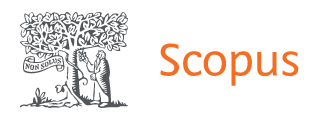
Wellcome ICSSF 2026
The 2nd International Conference on SDGs for Sustainable Future (ICSSF) 2026, themed “Collaborative Action of Environmental Science and Renewable Energy for the Future on SDGs in Higher Education”, continues the momentum set by the previous ICSSF conference, which focused on “Enhancing a Strategic of Environmental Sciences and Renewable Energy for the Future of SDGs in Higher Education.” This conference will build upon that foundation, aiming to strengthen collaboration among academia, policymakers, and industry leaders to further sustainability efforts and contribute to the achievement of the Sustainable Development Goals (SDGs). The conference’s core scope delves deeply into the multifaceted challenges and opportunities presented by each scope: (1) Earth and Environmental Sciences; (2) Engineering and Technology; and (3) Life Sciences.
A central theme of ICSSF 2026 will be how Earth and Environmental Sciences can drive the achievement of SDGs, particularly those related to environmental protection and climate change. The conference will provide a platform for discussing innovative solutions and scientific advances aimed at tackling global environmental challenges. Alongside this, Engineering and Technology will be explored as vital areas that contribute to sustainability through advances in renewable energy, energy efficiency, and green technologies. The conference will highlight the role of Life Sciences in addressing issues such as biodiversity loss, health, and ecosystem services, all of which are key to creating a sustainable future in line with the SDGs.
ICSSF 2026 is of paramount importance as it aligns higher education with the global sustainability agenda, encouraging the integration of sustainable practices across disciplines. This conference offers a unique opportunity to engage with the latest research and innovations in Earth and Environmental Sciences, Engineering and Technology, and Life Sciences, enabling participants to collaborate on real-world solutions. It aims to drive progress by promoting knowledge exchange, interdisciplinary partnerships, and research that can contribute to sustainable development goals. By offering actionable insights and fostering cooperation among diverse stakeholders, ICSSF 2026 is poised to play a critical role in shaping the future of sustainability in higher education and beyond.



